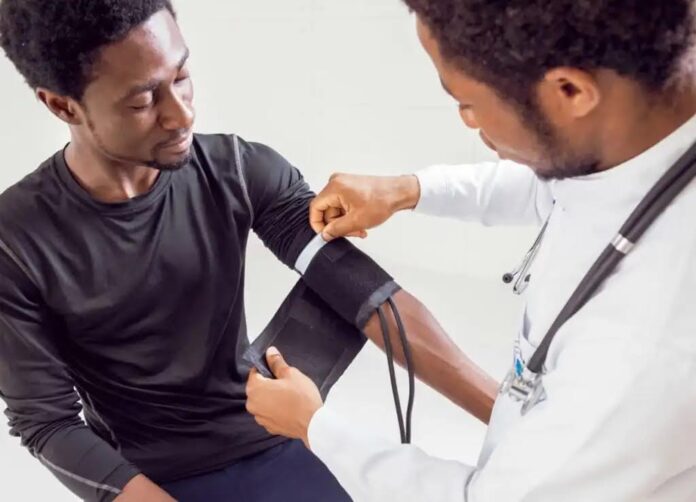A few weeks ago, I met a few childhood friends for brunch at a trendy downtown Baltimore bistro to catch up and figure out how much time had passed since we last got together. We fondly enjoyed riding our bikes across the city and playing sports as adolescent males.
After several impromptu conversations about the neighborhood changes and updates on our families and careers, the tenor of the discussion shifted to health and mental health. We engaged in a sobering conversation among 50-plus-year-old Black men who all grew up navigating encounters with the police, drive-by shootings, and many other challenges. Sadly, many challenges we endured over the last four decades as teenagers growing up during the height of the infamous Crack Cocaine epidemic were still omnipresent in cities like Baltimore.
For most of us growing up with working-class parents, many with college degrees, simple things like walking home from school took planning, precision, and courage. We were navigating drug dealers standing on the corner or eluding the school bully who would occasionally rob you of lunch money. Most of us never shared with our parents the anxieties and traumatic experiences we faced during our years of schooling, traveling back and forth from school.
As the conversation progressed, we could rattle off names of Black men who had fallen victim to preventable health diseases like heart attacks and strokes. Others in our peer network had fallen victim to homicides and even suicide. These fallen comrades’ names read like a school graduation list. Remembering the names and faces of so many caused several of us to shed a tear. It quickly became apparent that despite being fortunate to achieve college degrees and, in many cases, terminal degrees (law or doctorate degrees) and excelling in various fields and careers, we all had been deeply traumatized growing up in an American city.
The Centers for Disease Control and Prevention indicates that Black men in the United States suffer from some of the worse health outcomes than any other racial group in America. Over the last few years, we could each identify Black men in our lives who passed away from health-related challenges. One after another, we shared the names of comrades in our neighborhood–one had his foot amputated because of diabetes, and numerous others had succumbed to prostate cancer before reaching the ripe age of 60 years.
Additionally, Mental Health in America is one of the nation’s leading national nonprofits dedicated to promoting mental health, well-being, and illness prevention; over 6 million men suffer from depression that goes undiagnosed. Going around the room, several of us acknowledged that the power of therapy is helping us navigate many of the demons we have encountered over the years. Others in the group shared their reluctance about therapy and mental health interventions. One of the most outspoken members of the group shared how therapy helped him reconcile the death of his brother to gun violence in the early 80s to assist him more recently in the emotional turmoil of going through a heated divorce. Two more members talked about their challenges in finding Black male clinicians who understand the complexities that Black men in America face.
Self-Care Tips for Black Men
1. Make an appointment to visit your primary care physician. This may be a frightening experience, but it could save your life.
2. Identify and research Black clinicians in your area- Therapy is the best way to address multiple traumas and navigate the racism that Black men face in this country.
3. Create an exercise routine- You are not training for the Olympics, but consider planning walking, swimming, or yoga into your daily routine.
4. Rediscover the power of books- Finding books you are interested in is a strategy to relax and reduce stress. Audiobooks are a fantastic way to connect to books as well.
5. Social media fast- periodically disconnect from social media. The overwhelming amount of content on social media can be distracting and retraumatizing.
David C. Miller, Ph.D., is the author of Dare to Be King: What If the Prince Lives? Dr. Miller’s research focuses on Black fatherhood and men’s health.





